


The Government’s economic advisers are expecting the island's finances to recover from the pandemic more slowly than originally expected.
The Fiscal Policy Panel has downgraded its forecast for 2020, and is predicting a sharper-than-expected fall in financial services profits from last year, and a slowdown in house price growth this year, in its latest forecast.
It says that the Government should therefore aim to close its deficit more slowly – with a plan to balance the budget only by 2025.
The Government was expecting to return to a £13.3m budget surplus in 2023 and a £13.2m surplus in 2024 but the FPP thinks that is overly optimistic.
It maintains that deficits over the course of the next Government Plan (2021-2025) should be funded through borrowing, rather than by drawing down on reserves.
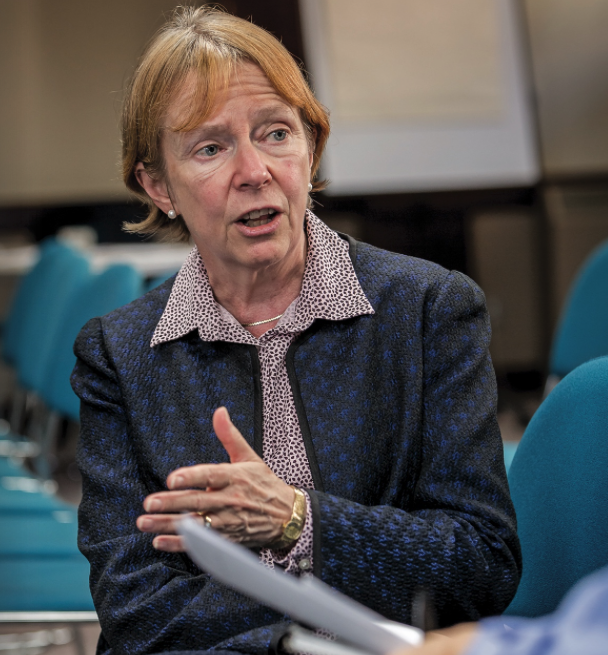
Pictured: Fiscal Policy Panel chair Dame Kate Barker.
In a letter to Treasury Minister Susie Pinel outlining the FPP’s updated assumptions, Panel Chair Dame Kate Barker writes: “It is likely that the pandemic will have caused long-term ‘scarring’ effects on the economy.
"This means that there is a risk Jersey will not recover to the level of economic output expected before the pandemic in the years covered by the Government Plan.
“Prospects for the global economy are similarly uncertain, with some signs of strength alongside a number of remaining risks."
She continued: “Trade in goods and manufacturing production have both rebounded more quickly than expected, and while restrictions remain in many countries, these are having less impact on economic activity than the restrictions that were introduced in the first half of 2020.
“The significant fiscal stimulus in the US will provide a boost to global growth overall. However, the speed and effectiveness of the vaccine rollout is key to the recovery across all countries.”
The FPP say that the latest data – including December’s Business Tendency Survey, the number of job vacancies advertised, house prices rising by 4.5% in 2020 and low inflation - suggest a gradual recovery in the second half of the year.
In summary, the panel’s updated forecast is:
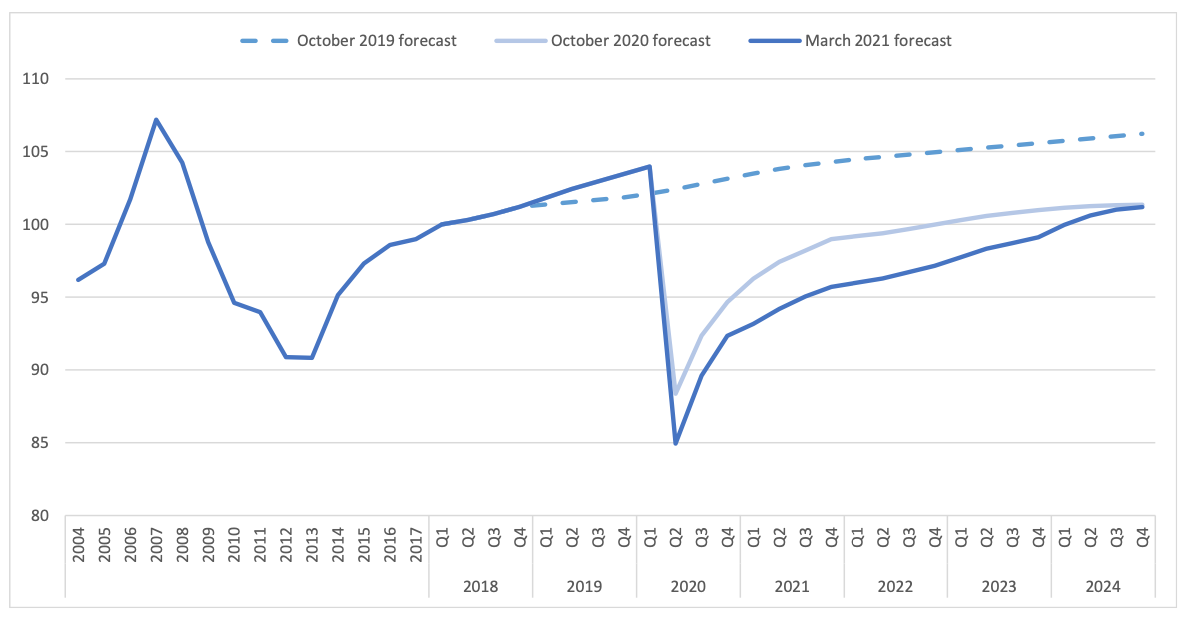
Pictured: The FPP's predictions from 2018, based on Gross Value Added, which is a measure of economic productivity.
The report says that changing interest rate forecasts affects its own predictions: “The outlook for interest rates has however markedly changed since our last set of economic assumptions in October 2020, with markets now expecting that rates could return to 2019 levels by 2025.
“This means there is potential for banking profits to recover more quickly, and a further reduction of the UK base rate into negative territory now appears much less likely.
“There has been a strong performance for funds under administration in Jersey, which grew by 9% in 2020.
“Overall, the finance sector in Jersey has proven resilient and has been able to adapt readily to the challenges of the pandemic. However, significant risks and challenges still remain for the sector in the medium and longer term.”
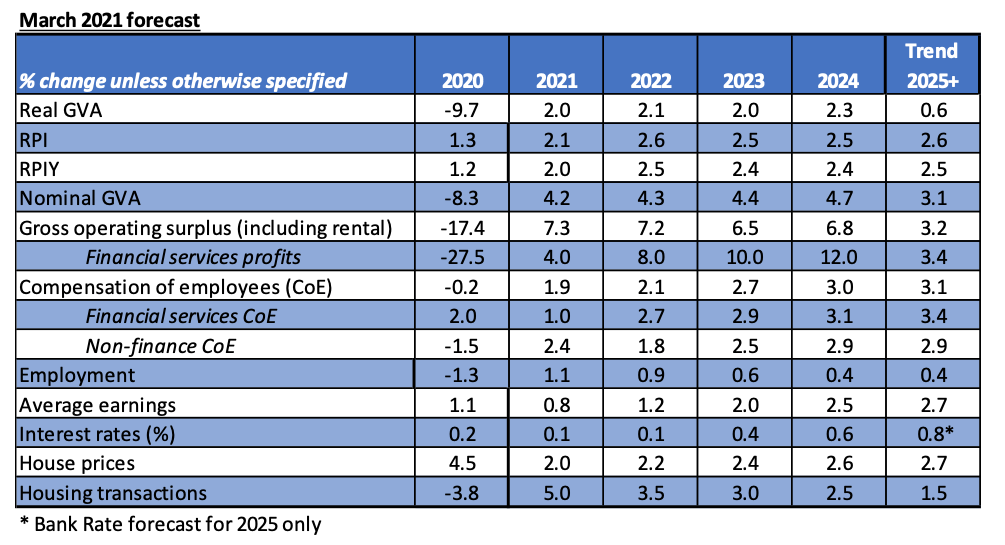
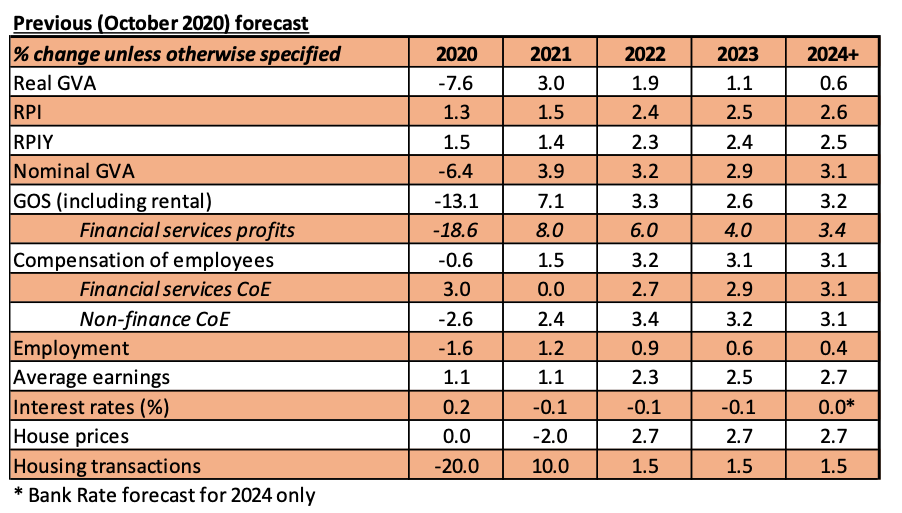
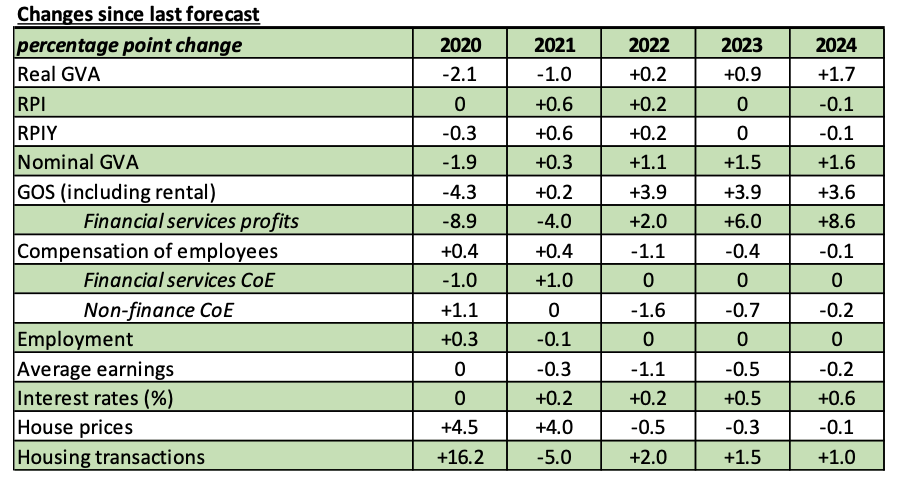
Comments
Comments on this story express the views of the commentator only, not Bailiwick Publishing. We are unable to guarantee the accuracy of any of those comments.